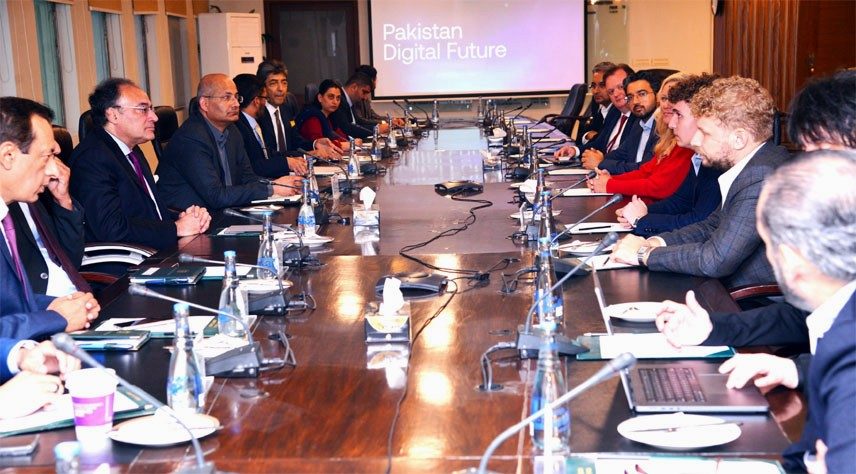Pakistan’s digital banking revolution gains momentum as Muhammad Aurangzeb acknowledges cryptocurrency’s role in the country’s informal financial networks

By our correspondent
ISLAMABAD: At the First Pakistan Banking Summit 2025 in Karachi, Finance Minister Muhammad Aurangzeb made a compelling case for a forward-looking approach to digital transformation in the country’s banking sector, urging regulators to reconsider their stance on cryptocurrency. His remarks underscored the growing inevitability of digital assets and artificial intelligence in shaping modern economies, warning that Pakistan risks falling behind if it does not keep pace with global advancements.
Aurangzeb called on the State Bank of Pakistan (SBP) to adopt a more open-minded approach towards cryptocurrency, acknowledging its presence in informal markets and the increasing reliance on digital transactions. He stressed that as financial technology evolves, Pakistan’s regulatory framework must be dynamic enough to accommodate innovations without stifling growth. The minister pointed to global trends, where emerging economies are leveraging digital banking tools and AI-driven financial solutions to enhance financial inclusion.
Reflecting on international developments, Aurangzeb referenced discussions at the AlUla Conference in Saudi Arabia, where policymakers explored the role of digital assets in the global economy. He noted that while several countries are actively integrating cryptocurrency and AI-driven financial models, Pakistan’s approach remains cautious—perhaps overly so. While acknowledging the risks associated with unregulated digital assets, he emphasised the need for a balanced regulatory framework that mitigates risks without stifling innovation.
Reiterating the government’s commitment to financial digitisation, he outlined steps to reduce Pakistan’s reliance on cash-based transactions, advocating for wider adoption of point-of-sale (POS) systems and QR code payments. He acknowledged that cryptocurrency, if properly regulated, could be a part of this broader shift towards digital financial services. However, he cautioned that rigid opposition to digital assets could leave Pakistan at a disadvantage, especially as regional and global economies move towards decentralised financial ecosystems.
As the summit concluded, the finance minister’s message was clear: Pakistan cannot afford to ignore the digital banking revolution. A carefully structured regulatory framework, rather than an outright ban on cryptocurrency, could help the country harness the benefits of emerging financial technologies while ensuring security and stability. The real challenge, he warned, was not whether to engage with digital assets, but how to do so in a way that safeguards economic interests while embracing the opportunities of a rapidly changing financial landscape.



